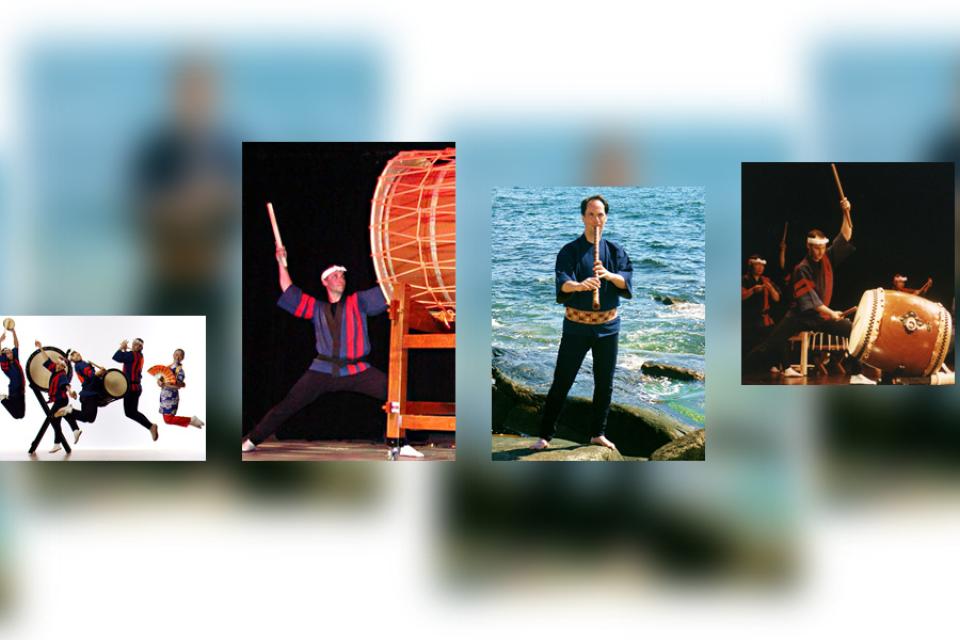
Big Drum Articles—Marco Lienhard
Marco Lienhard: Bridging Worlds with Music

Marco Lienhard may have, at one time, seemed like an unlikely face in the world of Japanese taiko. He was born in Switzerland; he is not Japanese; he is not Asian. However, the rhythmic thundering of the taiko drums have become as natural to him as the sounds of his own heartbeats.
Originally from Switzerland, Marco Lienhard joined an exchange program and went to Japan in the early 1980s. During that year, he was introduced to taiko. Following up on his growing interest in Japanese music, he soon contacted a group in Japan, Ondekoza. The group members met him in Osaka, and after leaving his exchange program, Lienhard eventually joined the group. Starting with the bigger taiko drum, he later learned shakuhachi and fue, quickly becoming a vital part of the group. He remained with Ondekoza from 1981 to 1994.

Since his departure from Ondekoza, Marco Lienhard has remained a key figure in music in the United States and Japan, shaping the way that taiko has been changing over the years. He has toured extensively as a solo artist, and he eventually founded his own Japanese music and dance group based in New York, Taikoza, which has performed worldwide since 1995. Most recently, Beginnings, Taikoza’s first album, was nominated for a 2004 Just Plain Folks Music Award.
Marco Lienhard’s professional resume includes more than 3000 concerts in Europe, Asia and North America, with appearances at some of the world’s most prestigious venues including Carnegie Hall, Lincoln Center, Boston Symphony Hall, Osaka Castle Hall, Hong Kong Cultural Center, Suntory Hall in Tokyo, and recently at the Madison Square Garden in New York. He has also contributed to many movies, documentaries, and CDs, and he was the featured shakuhachi player in the American premiere of the Temple of the Golden Pavilion with the New York City Opera at Lincoln Center.


What makes Marco Lienhard an ongoing force in music is his determination to make taiko more “international” while always considering the music’s roots in Japan. As Lienhard puts it, paraphrasing a Chinese saying, one “should never forget the person who dug the well.” Other reflections he shared in an interview with the Japanese American National Museum suggest that he is as passionate about his music now as he was when he first began. “It’s just such a simple way of communicating and very strong. It’s like this thing that just makes your whole body feel. I find it wonderful in the way of communicating with others. Especially touring all over the world, you don’t need word explanations. You feel people respond to that.”
Because of Marco Lienhard’s performances and his continuing efforts to educate people through workshops and conferences, people from around the world will be able to connect to the power, the spirit, and the heartfelt rhythms of his music.
This interview was conducted in conjunction with the Big Drum: Taiko in the United States exhibition in 2005.
